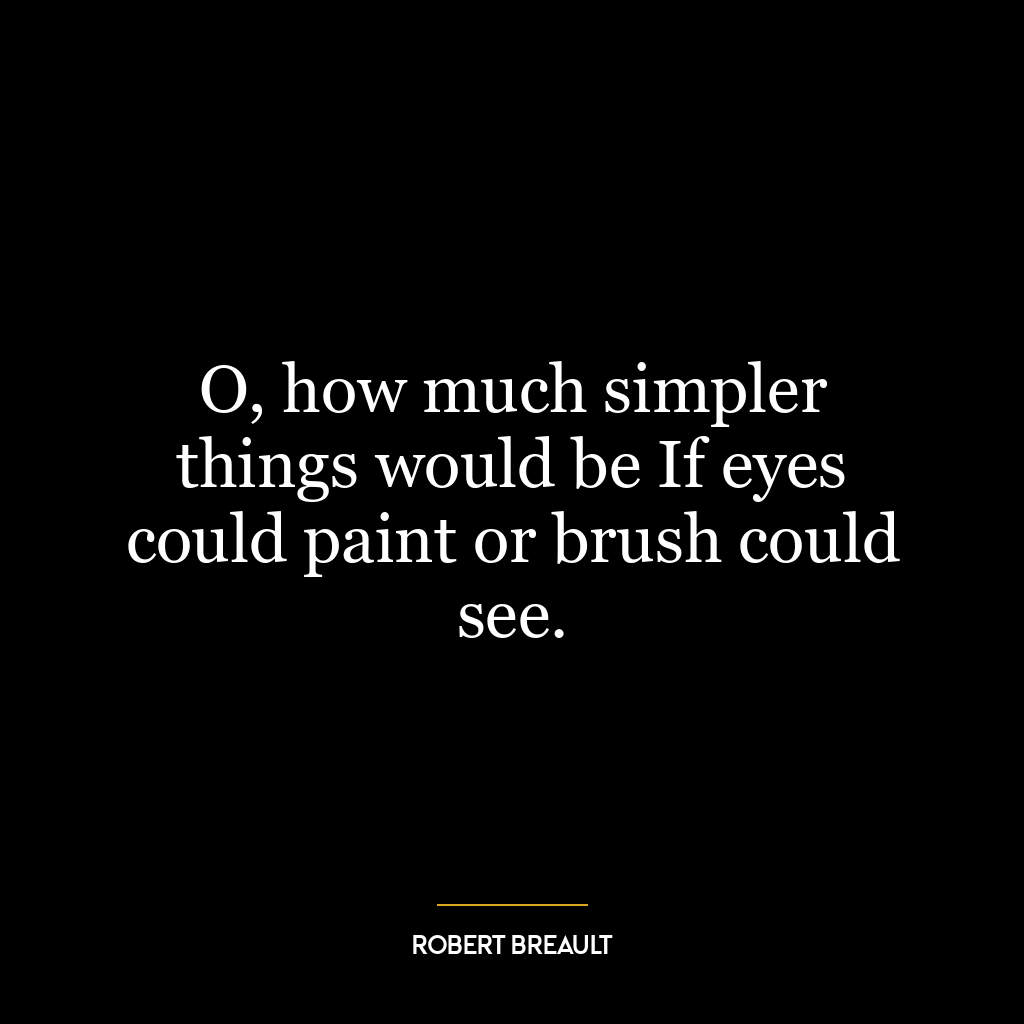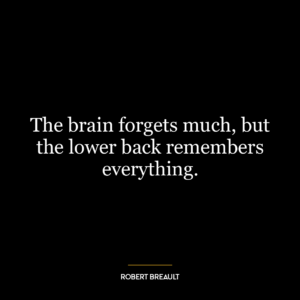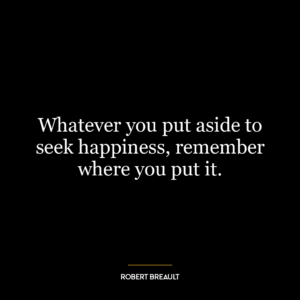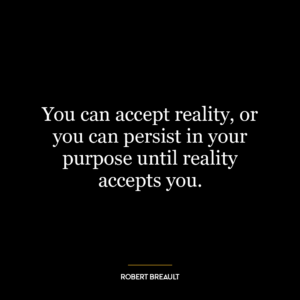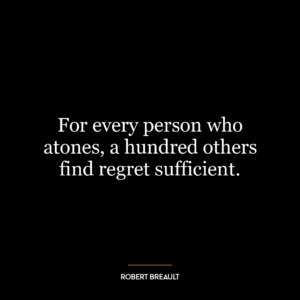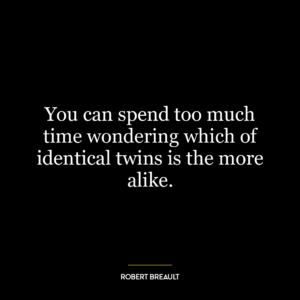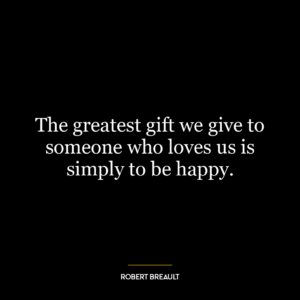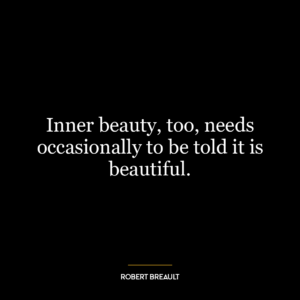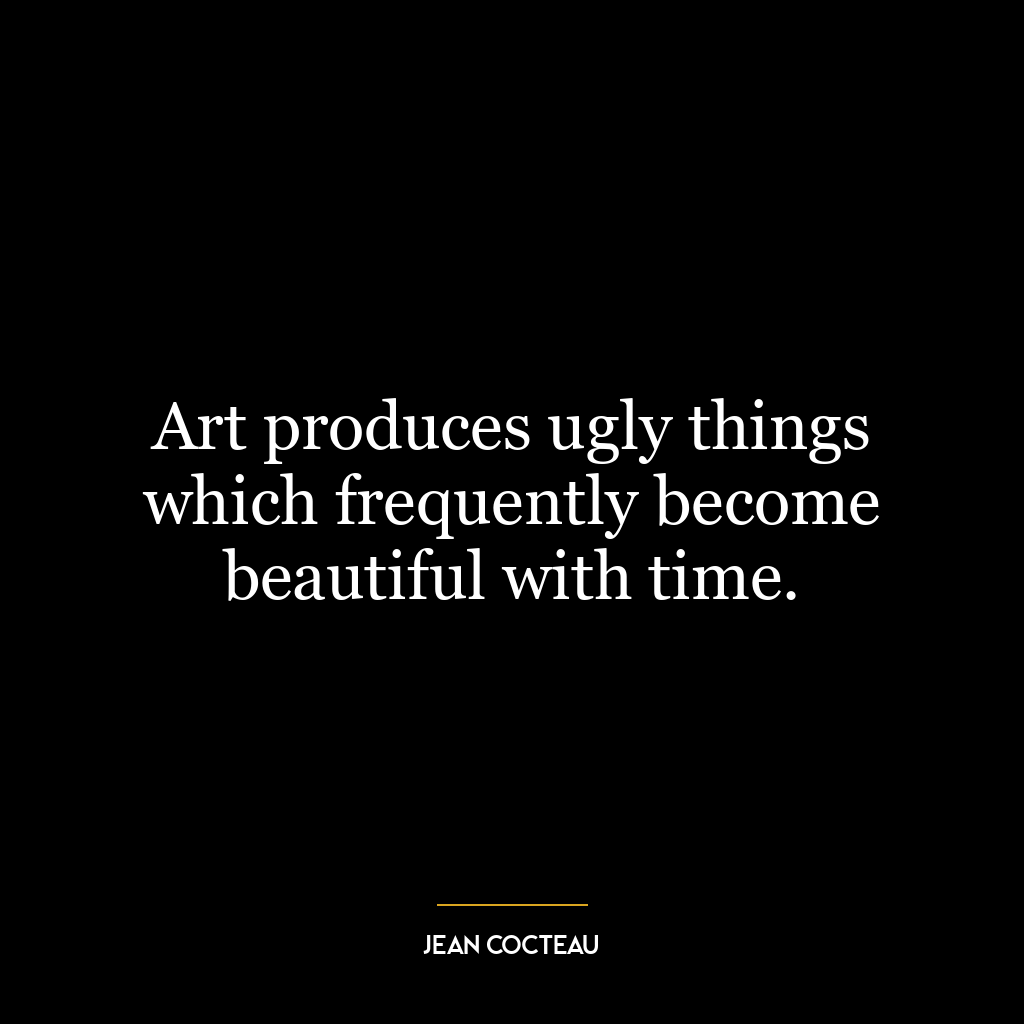O, how much simpler things would be If eyes could paint or brush could see.
This quote is a beautiful metaphor that explores the limitations of expression and understanding. The first part, “If eyes could paint,” suggests the idea that if our eyes could directly transpose what we see onto a canvas, it would be a more accurate representation of reality. It implies that our personal perceptions, emotions, and biases often color the way we depict the world around us. If our eyes could paint, there would be no distortion or subjective interpretation, leading to a simpler, more authentic representation.
The second part, “or brush could see,” flips the scenario. It suggests that if a paintbrush could see, it would understand the artist’s vision directly and could create a perfect representation. It implies that the tools we use to express ourselves are limited, unable to fully capture our intentions, thoughts, or feelings.
Applying this quote to today’s world, it could be related to the way we communicate and understand each other. In an era where communication is often digital and text-based, a lot of context, tone, and emotion can be lost, leading to misunderstandings. If our words could truly convey what we feel (eyes could paint), or if others could perfectly understand our intentions (brush could see), communication would be much simpler.
In terms of personal development, this quote can inspire us to strive for clarity and authenticity in our self-expression. We should aim to see the world as clearly as possible, not letting our biases distort our perceptions. Additionally, we should try to communicate our thoughts and feelings as accurately as we can, so others can understand us better. At the same time, we should be aware of the limitations of our tools of expression and strive to improve them.

